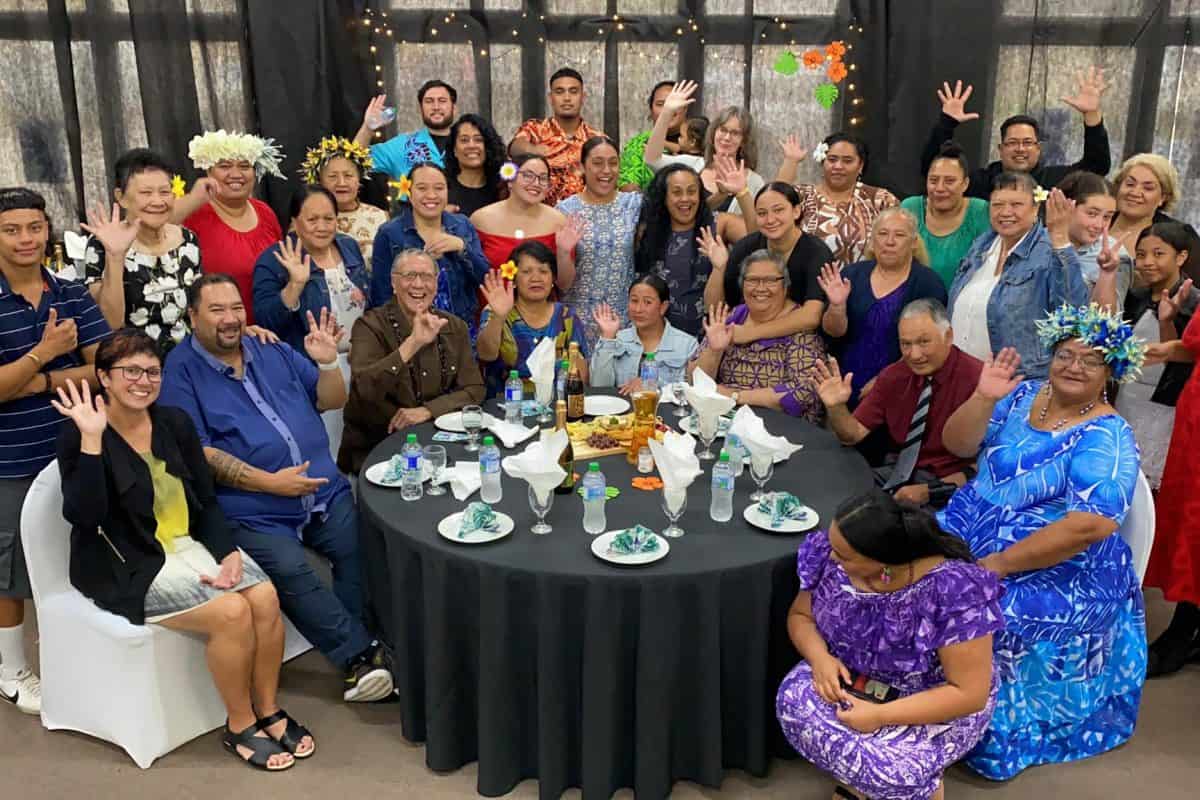Pasifika youth become researchers and leaders on prediabetes prevention
30 April 2021
The Pasifika Prediabetes Youth Empowerment Programme (PPYEP) research project aimed to find new ways of reducing the prevalence of prediabetes in Pasifika communities. It had encouraging results and successful outcomes, such as Pasifika youth gaining knowledge and confidence to be health leaders in their communities.
The project, led by Dr Ridvan (Riz) Tupai-Firestone from Massey University, was co-designed with two community partners – South Waikato Pacific Island Community Services (SWPICs) and The Fono – and delivered in Tokoroa, a rural Waikato town, and Henderson, a suburb of Auckland. It was funded through the Long-Term Conditions partnership.*
The first part of the project started in October 2017 and focused on scaling up a previously tested youth empowerment programme. In the second phase from November 2019, youth-led interventions were co-designed and tested within both communities. The impact of each intervention was evaluated and the results disseminated to the participating communities.
Empowering Pasifika youth
The study engaged with young Pasifika people who undertook the empowerment programme, during which they gained leadership skills, learnt about the historical and social context of foodways in relation to health, and enhanced their food literacy through learning community cooking skills, and how to navigate the grocery store.
“As well as focusing on youth-led work, this project explored the benefits of co-designing research with communities. It gave enormous insights into the potential of youth advocacy and community mobilisation for improving health,” says Principal Investigator Dr Tupai-Firestone.
Positive changes in health behaviour
The community-centred interventions, co-designed and led by the youth, consisted of:
- a weekly physical activity (dance activity and a 4 km trek);
- recording of 10,000 steps per day; and
- education about healthy food intake.
The key findings reported significant weight loss of greater than 2.4% and enhanced knowledge over an 8-week period.
“We think a larger scale study, with the intervention in place for a longer time, would have shown even greater benefits,” says Dr Tupai-Firestone. Previous studies where a 3-7% weight loss occurred ran for a longer period.
Perhaps of greater significance, the study showed the value of building youth and community capacity. “Developing the capacity of young people and transforming their knowledge and skills into useful, actionable knowledge within their communities was a highlight,” says Dr Tupai-Firestone. “The acceptability of the interventions was really enhanced because the project employed the local social capital, cultural knowledge and resources from within each community.”
Turning research on its head
Research is often led from a ‘top down’ approach but in this study the researchers worked with Pasifika youth and community-based researchers to co-design ways of addressing rising rates of prediabetes in Pacific communities. Dr Firestone believes that flipping to a ‘grass roots’ approach may be the reason for the beneficial outcomes.
“In the past, researchers have developed interventions to address obesity without really understanding what it means from a Pasifika perspective. We wanted to flip the research method. To make transformative change it’s essential to listen to communities, find out what their needs are and what is culturally relevant to them,” she says.
The process was a learning curve for all. The communities and university researchers learnt from each other, with community members offering insight about their day-to-day reality, what works and what doesn’t, from a Pasifika perspective.
Tevita Funaki, CEO of The Fono and one of the co-design partners, was interviewed by Ms Dannielle Prapaveissis as part of her PhD** and said that the opportunity to be at the table was part of the empowerment process. “It’s empowering when you are invited to co-design everything as one, to look at what’s here and think about it, to be given that opportunity.”
Spreading the word
The Pasifika youth became co-design researchers in this project – sharing knowledge with their communities, planning interventions, collecting research data and taking leadership roles.
“I was able to learn about prediabetes and the whole story rather than just saying ‘that’s prediabetes, and it’s what leads to diabetes.’ It taught me that it’s avoidable and how to prevent it.”
Youth leader, Auckland
“The programme was a bit of a wakeup call for people to think about the sourcing of our food and where things came from specifically and how it impacts our health. By reading and understanding more about the nutrition labels of products, I learned how foods from other countries affect our environment.”
Youth leader, Tokoroa
After the PPYEP project finished, some youth leaders planned and implemented their own intervention, the “Fanongo ki he Ui Biggest Loser Challenge”. This 8-week programme at their church focused on health education, nutrition and exercise, building on the skills and knowledge learned from PPYEP. And in a roadshow around the communities, some youth leaders joined academic and community researchers to disseminate the results of this study.
Pasifika Prediabetes Youth Empowerment Programme (PPYEP) research page
*The Long-Term Conditions partnership is a three-way funding partnership formed in 2016 between the New Zealand Ministry of Health, Health Research Council of New Zealand and Healthier Lives–He Oranga Hauora National Science Challenge for research aimed at improving the prevention and treatment of long-term health conditions.
**Ms Prapaveissis interviewed several people, including the CEO of the Fono in Auckland, as part of her PhD, ‘Transforming the lives of youth through social change and empowerment’.


